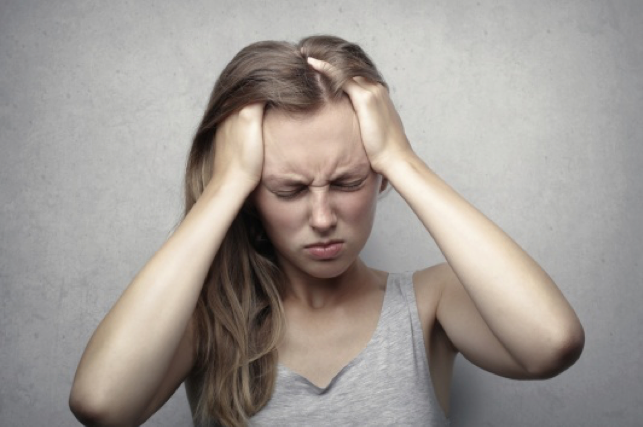Do you need misophonia therapy? Misophonia is a unique psychological condition that is related to the cognitive dysfunction of the brain. It is a relatively new disorder and so there is not enough research on it on the internet to help you. Many people from the medical science community disregard it as a legitimate disorder because there is still not a proper procedural diagnosis for it. One of the arguments raised by the skeptic community is that you cannot possibly tell what kinds of emotions are involved in it. You will see some resources referring to this condition as selective sound sensitivity syndrome. Misophonia can be detrimental for your mental health because it not only affects the person suffering from it, but also the people around the person.
How it works
Misophonia causes an immediate reaction to sound. The sound can be different from person to person and does not necessarily have to be loud. It makes you react involuntarily and repulsively to any specific sound or sight. The triggers are generally the softer sounds, often also repetitive in nature. Misophonia triggers an outburst of strong and involuntary emotions in a person. The most occurring emotions that the person displays are anger, disgust, frustration, resentment, disgust and hate towards the person making the sound. In extreme cases, the person suffering with Misophonia can cause harm to other people when triggered by the sound. However, you should know here that people with this condition rarely act out on these impulses.

(source)
Prognosis
Misophonia might not go away with time and so it does not get better as you get older. In fact it generally gets worse as time progresses. The intensity and severity of this condition can be stable for years and escalate at any point. As per the limited information on the condition, it can be fluctuating in nature. The reactions to the triggers can get better as you get older. This can be because once people mature they learn to deal with this disorder. Some people even modify their whole life in order to refrain from any moment that triggers them.
Misophonia Therapy
Treatment for Misophonia can be difficult. Since there is no diagnosis for it, there are no clinical procedures that can instantly cure it. The best and most effective methods available for the treatment of Misophonia are therapeutic treatments. Different therapies exist that treat Misophonia and some have even proven to have lasting positive effects on patients. Let us dive into the best ones that medical professionals usually recommend.
1. Cognitive behavioral Therapy (CBT)
Since Misophonia is predominantly, a disorder that the brain is responsible for, cognitive behavioral therapy has a high chance of showing positive results. This therapy consists of multiple lasting sessions with a professional consultant. The consultant or therapist helps you analyze the problem in depth over multiple sessions of therapy. This has worked for patients that have a keen control over their conscience and have the ability to self evaluate. The main purpose of this therapy lies within the eradication of negative thoughts in the brain. The therapist in these sessions aims to have a transformative effect on the patient so that they are capable to self alleviate the emotional takeover.

(source)
2. Tinnitus Retraining Therapy (TRT)
This is a therapy for treating a different hearing disorder, which you would call Tinnitus. This disorder causes loud ringing sound in the ear. Tinnitus Retraining Therapy This therapy is a combination of multiple therapies that attempts to make chances in the brains dysfunctional neural wiring. A consultant performs multiple sessions to help change the perceptions of this disorder. The patient receives a complete overview of the auditory malfunction so that he can isolate any of the negative thoughts that he has with the disorder. Another method that this therapy may imply is sound therapy,
3. Relaxation Therapy
This therapy includes every possible therapy that causes physical and mental relaxation. The purpose of this therapy is to get you out of the anxious or distressed state and it was be helpful when a person with misophonia faces triggers. Physical therapies for this include acupuncture, Massages, exercise, sauna, chiropractics, and basically anything that will trigger the pleasure centers of your brain. Mental relaxation includes meditation. Meditation has proven to be incredible for the treatment of mental disorders and it can be easily performed anywhere without the help of any therapist, all you need is quite space. Misophonic patients can benefit greatly from emptying their mind and indulging in meditative states.
Misophonia Therapy: Conclusion
Misophonia is a relatively new disorder that is still debatable and so that is why it has lost all those years of being a subject to research. The research on this condition has been recent and so, there hasn’t been a real breakthrough in finding a real cure or effective treatment.
Treatments mentioned above have been useful regardless of the lack of research. If you are looking for treatment options for yourself or anyone else suffering from misophonia or it’s symptoms, call us at the Misophonia Cognitive Center™ and schedule a tele-session today.

Misophonia may be new but it has been around long enough to be named over 20 years ago. There are plenty of online forums in which people are posting that they feel like suicide is the only solution–including minors. There is no excuse of the wide scale ignorance of this condition among medical and mental health professionals. Many are giving horrible advice to their patients because they are too ignorant, stubborn or prejudiced to research the condition. These professionals take an oath not to harm their patients yet that is exactly what they are doing. They have joined the chorus of laypersons who label misophonics “Karens.” And there is no excuse of this behavior.